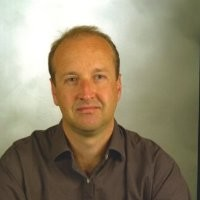Cees van Leeuwen

Cees van Leeuwen
Professor Emeritus, KU Leuven - Belgium
Since October 2011 Professor Emeritus Cees van Leeuwen has been heading the Laboratory for Perceptual Dynamics at the University of Leuven, supported by a prestigious "Odysseus" grant from the Flemish Science Organization FWO. For the previous 12 years, the lab (with much of the same staff) had been located at the RIKEN Brain Science Institute. The lab is highly multidisciplinary, with cognitive psychologists, neuroscientists, engineers, and physicists working together on experimental and computational approaches to visual perception inspired by the framework of complex adaptive systems. The lab is known for, among other things, studying brain activity as propagating patterns rather than a collection of static sources, and the role of propagating activity in visual information processing and conscious awareness.
THE GLOBAL VOICES AT THE GHANA CENTRE FOR CHINA STUDIES
On July 15, 2025 Professor Emeritus Cees van Leeuwen, head of the Laboratory for Perceptual Dynamics at KU Leuven, Belgium’s highest-ranked university, shared with the Ghana Centre for China Studies his perspective on the EU’s international cooperation with China in research and innovation.
There are some top-down initiatives which have put in place co-funding agreements on topics related to agriculture and climate change. Like scientist from countries anywhere in the world, Chinese researchers can apply for European Research Council Grants to start or run a lab in Europe. They can also participate in Synergy funding and Marie Skłodowska Curie Actions. According to Dashboard, most of horizon Synergies participations involving China were in the fields of agriculture and climate science
Given this state of affairs, it seems the focus of collaboration is technological and applied rather than fundamental scientific. Perhaps this is a remnant of the past, as this still reflects a perception of China as a developing country. True, both regions have needs as well as strengths in these scientific areas; also, these areas are "safe", politically speaking, as they are unlikely to lend themselves to military applications. Yet, it feels too restrictive; certainly because China has evolved into a scientific powerhouse in many fields. At the same time, it is now rapidly expanding in interdisciplinary fields as well as in the social sciences.
This certainly pertains to my field, cognitive neuroscience. Against this background, my answers to your questions are:
The collaboration appears to be stuck in the past. It urgently needs broadening to have mutual benefits in fields where Chinese science has reached strength as well as well as where it is strategically expanding, such as interdisciplinary and social sciences. Rather than top-down, grass-root initiatives are to be stimulated. Euraxess China is doing great work in establishing ties between the two regions.
We should develop a model for globalist science in a multipolar world. It is important to have a consistent, long-term strategy for how to facilitate international collaboration, not just within, but also between economic and political blocks. This means that we should be as open as possible, in proportion to the extent the other block respects and shares our values (primary scientific standards, but also governance and the rule of law with respect to intellectual ownership, e.g. patent rights, and, ultimately, freedom of expression and human rights more broadly). Such a strategy should inform our scientific policies as much as possible independently of the political agenda of the day, as scientific collaboration across the horizon needs time to develop (establishing connections, building trust, etc).
I currently have 2 Chinese Ph.D. students (one is funded by the PR China) and in the past had Chinese post-docs. Also some Chinese students spent short-term visits. The EU could make funding available more broadly to reciprocate these activities, so that collaborations could develop over the long term.
Production credits: This publication is produced by the Ghana Centre for China Studies,
Africa’s preeminent and most comprehensive platform exclusively dedicated to authoritative
interpretation of China’s domestic and foreign policies.
At the Ghana Centre for China Studies we eschew specific policy positions. All positions and
opinions expressed in this publication are solely those of the author (s).